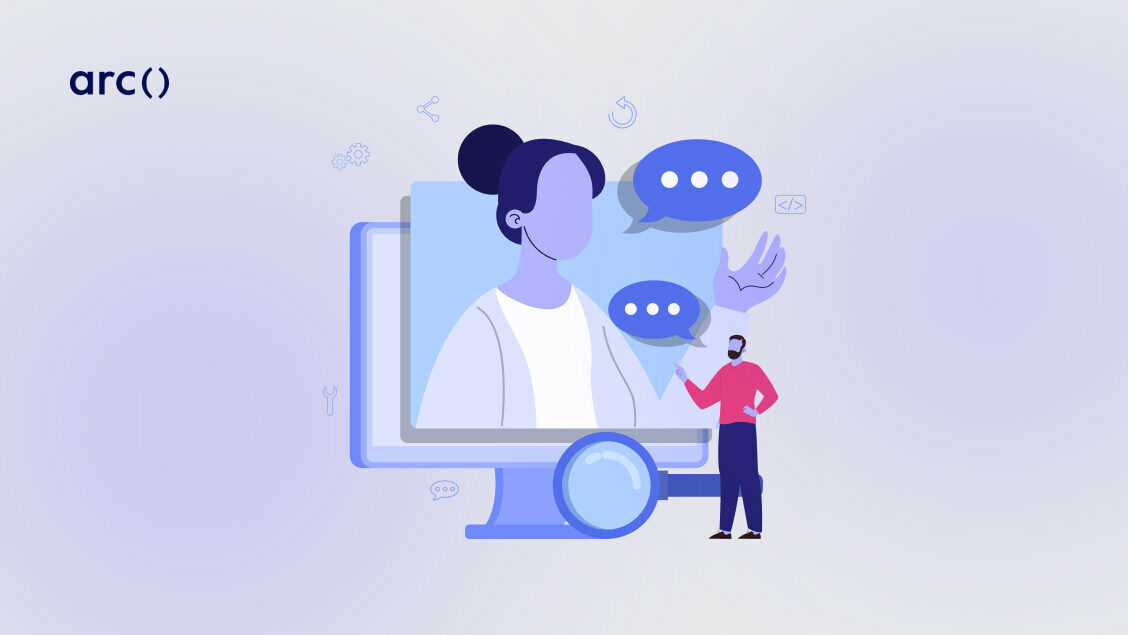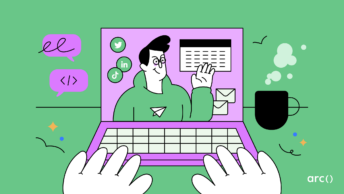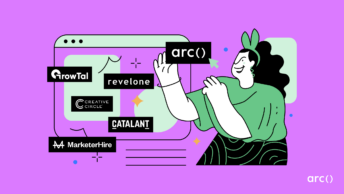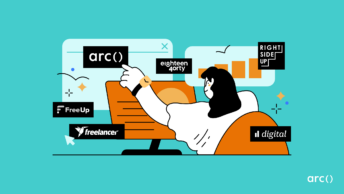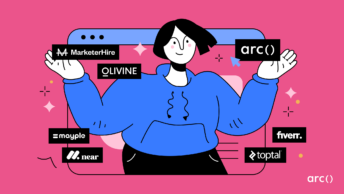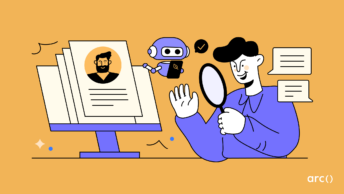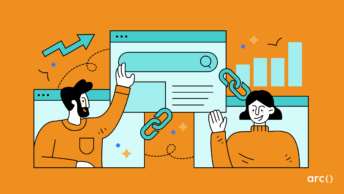Note: This guide is aimed at technical recruiters and hiring managers who are about to interview software engineers. If you are a software developer or engineer preparing for your big meeting, you can find a developer interview questions guide here. There, you can also find deeper links to interview guides for specific technologies and languages, such as SQL, DevOps, Engineering Management, Java, PHP, Ruby, Angular, Android, JavaScript, Machine Learning, MongoDB, TypeScript, Selenium, Spring, Data Engineering, React, and Web Development.
If you are hiring for years of experience, check out our guide on senior software engineer interview questions to ask your candidates.
Whether you’re searching for an in-house or freelance software engineer, finding the right candidate takes some work, to say the very least. And, it’s even more difficult if you’re unsure of what software engineering interview questions to ask.
Software developers and engineers are technical people, obviously, so most interviewers tend to jump into the technical interview right away. However, there are plenty of personality and ethics questions that you can ask to ensure the applicant you shortlist or hire is the best fit for your project.
In this post, we’ll walk you through the basics of the interviewing and hiring process. Here’s what we’ll cover (click to jump straight to that section):
- Preparing for the Interview
- Typical Software Engineer Hiring Process
- Important Questions to Ask Engineering Candidates
Looking for top talent fast? See how Arc can help you:
⚡️ Find developers, designers, marketers, and more
⚡️ Freelance or full-time remote + fully vetted
⚡️ Save up to 80% with global hires
Hire top talent with Arc risk-free →
Preparing for the Interview
As with any interview, you need to know what you plan to ask before you start. Although the questions will depend on your software project, here are some general steps for your preparation:
1. Know your project requirements
You need a software engineer that understands your needs. The only way for the developer to understand what you need is for you to have clear project specifications in mind before the interview. If you already have project documentation, review it and identify important components.
2. Know your budget
Every software developer has their own rate. Most of the time, years of experience, tech stack, location, and project complexity determine what you’ll pay a developer. According to our study of app costs, an iOS developer in North America has a median rate $150/hr, whereas it is $11/hr in Indonesia.
There is no need to interview a software engineer that is outside of your budget, so understand your budget constraints before you start an interview.
Tip: If you’re hiring a freelance software engineer, be sure you know your scope, budget, and design before you start interviewing developers!
3. Know your deadline
You need to set a realistic deadline, and a software developer will give you a general estimate based on project requirements. Some developers don’t work well under pressure, so knowing your timeline and asking a developer for a time estimate helps identify the right candidate.
4. Prepare your questions
Some interviewers ad-lib their questions, and many times the interview goes off course as the conversation continues. Prepare to ask the developer questions that relate to both their technical and soft skills. If you’re not very technical, you can ask an experienced engineer to help you.
Read More: How to Conduct a Remote Technical Interview Successfully
Software Engineer Hiring Process
There are three main interview phases when working with any type of app or software developer. You may do only one or all of the following:
Phase I
This is the basic introduction phase and usually involves basic questions about previous employment and any previous projects the software developer has worked on.
Phase II
This is the technical stage of the interview. If you’re not a technical person, you might have another developer or project manager familiar with development ask these questions to evaluate the developer’s skill. Usually, they result in pseudo-code or logic skills that show whether or not the developer understands the question.
Phase III
This is the final part of the interview where the developer can ask questions and clarify any confusion.
Read More: Is Your Developer Ready for Remote Work? 14 Key Interview Questions
You can also try Arc, your shortcut to the world’s best remote talent:
⚡️ Access 450,000 top developers, designers, and marketers
⚡️ Vetted and ready to interview
⚡️ Freelance or full-time
Try Arc and hire top talent now →
Interview Questions to Ask a Software Engineer
Once you have a shortlist of software engineer candidates, below are the essential questions to ask them (beyond questions about soft skills). Keep in mind that these questions are general software development questions that don’t refer to any specific language. This is not a comprehensive list of questions, so be sure to prepare and ask questions that are relevant to the job that the engineer will be responsible for if hired.
Not only do these interview questions test the developer’s knowledge of engineering and building software, but these questions will also help you understand whether or not the developer can communicate effectively with you.
Note: The software engineer interview questions below are in no particular order.
1. Discuss one of your previous projects and explain how you completed it successfully.
This question allows the engineer to openly discuss their previous project without getting too technical. There are several advantages to this discussion. The first one is that you can identify if the candidate worked with a team and if he or she was able to work together to brainstorm solutions.
It also helps you understand their management skills, time estimates, interactions with project managers, and their contribution to the overall project.
2. When you ran into an obstacle with your project, how did you handle the issue?
This is an important interview question to ask software engineer job applicants because it identifies how the candidate deals with obstacles, delays, and any problems that come up during the project. Most software development projects have hurdles of some kind, so a developer that has trouble identifying an obstacle with their previous project may raise a potential red flag.
If you decide to hire a software developer, you need to know how they are able to overcome problems to get the job done and within the deadline.
Read More: 21+ Important Freelance Interview Questions to Ask Software Engineers
3. Do you follow the Agile software development process?
Today, Agile is the most common way to manage software development procedures. Software developers should be on board and familiar with the process, so you can ask them if they are willing to work under those circumstances.
4. What do you know about multi-threading?
Multi-threading is a way to improve the performance of an application. Multi-threading is a process that uses several processors to run snippets of code. It improves performance and stops code from “hanging” when it runs.

5. What are your thoughts on unit testing?
Unit testing and test-driven development (TDD) are often regarded as best practices in software development and code maintenance. Unit testing is an extra set of code that tests various methods and procedures for logic errors and coding flaws. This helps eliminate many of the bugs that could be promoted to production.
Every developer should be familiar with unit testing, and it’s important to know how much a software developer prioritizes it in their workflow.
Read More: How to Find Developers: 18+ Expert Tips & Essential Strategies for 2022
6. What is MVC?
MVC stands for Model-View-Controller. It’s a way to separate code into its own compartments, typically like so:
- Model – the data layer that manages business logic and maintains data
- View – the front-end presentation layer, or UI layer
- Controller – the logic layer that handles user requests and behavior and updates the Model
7. How familiar are you with OOP analysis and design?
Object-oriented programming (OOP) is the core of major languages such as VB, Java, C++, and C#, so top software developers should have strong OOP skills. OOP is a process of using classes to describe components of a program.
For instance, if your program explains a house, classes would be the roof, doors, windows, and rooms. Your programmer should be able to explain classes using a similar analogy.
8. How do you organize your class modules and assets?
This will help you understand how the candidate organizes their code. There is no one “right” way to answer this question, but your team probably has a set standard and it helps to know if the developer organizes code in a way that is easily maintained and can be further documented.
Read More: How to Do Taxes When Hiring a Freelancer (Software Developer Clients)
9. What do you know about ORM?
Object-relational mapping (ORM) is a way to use software code so it can map to database tables. This technique turns tables into their own classes, so then developers can use those classes for LINQ queries. The candidate might mention Hibernate, which is one of the most common ORM frameworks.
10. What is your process for finding a bug in an application?
This software development interview question tests the way the candidate thinks when working with difficult bugs. Every candidate has their own process, but they must use a debugging tool, understand how to sift through each line of code using that tool, and then understand what must be done to fix the bug without affecting other code within a project.
11. How much time do you typically spend on debugging?
This follow-up interview question helps gauge how often a developer needs to debug his or her own code. Developers that need to spend a vast amount of their development time debugging may be ones who need extra help improving the code that they write.
Read More: How to Implement a Welcoming Software Developer Onboarding Process

Wrapping Up the Software Engineer Interview Questions Guide
Once the more general questions are out of the way, you (or someone more technical than you) can then ask the software engineer some follow-up questions that are specific to the tech stack or programming languages/frameworks that your project requires (e.g. React.js, PHP, Ruby on Rails, Java, etc.).
Before you end the interview, remember to ask the candidate if he or she has any questions, as they should have several regarding your business, the specifications of the project, the team, and more. If possible, try to keep a record of their answers, and be sure to follow up with any engineers that you are interested in hiring after your interviews.
Hiring top software developers can be an arduous task, especially if you’re spending time vetting inexperienced candidates, unqualified developers, or just not sure where to look. Have any software engineer interview questions that you’d like to add? Let us know in the comments below!
You can also try Arc, your shortcut to the world’s best remote talent:
⚡️ Access 450,000 top developers, designers, and marketers
⚡️ Vetted and ready to interview
⚡️ Freelance or full-time


